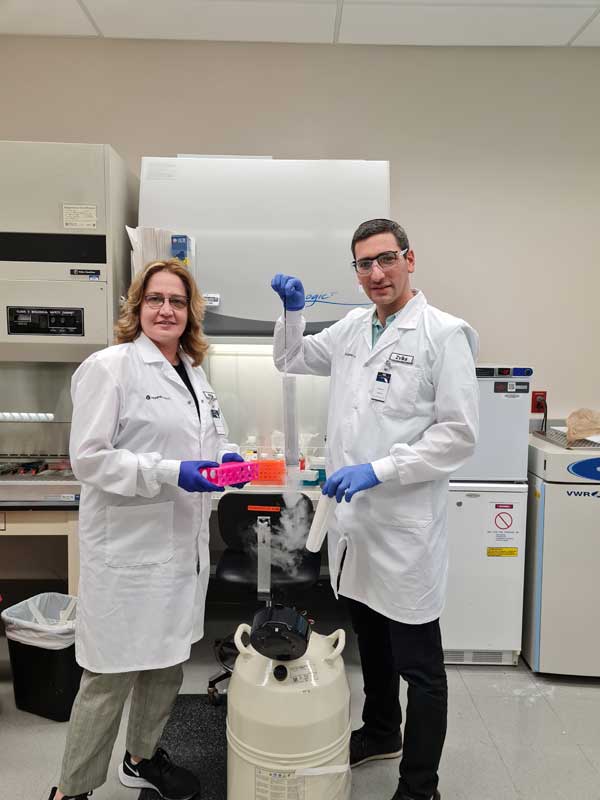
By David Bullock
Staff Writer
Fresh food is one item that astronauts aboard the International Space Station crave after long periods in space. But, supply ships from Earth only arrive ever few months, and food doesn’t stay fresh for very long. The problem will be even more acute for astronauts on long-duration missions to the moon and Mars.
Aleph Farms is working to solve part of the problem by developing technology that would allow future space explorers to grow their own steaks from bovine cells. The Israeli company is sending an experiment to the International Space Station aboard a SpaceX Crew Dragon spacecraft on Friday that will help scientists better understand how to grow the cells.
“Studying the effect of the space environment in growing the cells will help Aleph Farms better understand how its processes can evolve within extreme environments, allowing for the development of an automated, closed-loop system that produces steaks during long-term space missions and in other harsh climates on earth,” the company said in a press release.
The experiment is being flown to the station on Axiom Space’s first private mission to ISS. Former NASA astronaut Michael Lopez-Alegria is commanding the Ax-1 flight, which will take three paying customers and a load of experiments for an eight-day stay aboard the station.
“What we are trying to demonstrate in this experiment are the two main building blocks in the process for cultivating meat,” said Zvika Tamari, head of space research at Aleph Farms. “When you cultivate meat, you take an initial supply of cells and you multiply them, in a process called proliferation. Once you get a vast number of cells, you then continue differentiating the cells into different cell types… These are the two main building blocks for cultivating meat and they were never demonstrated in space…” Because cells grow and evolve differently in microgravity than on Earth, Tamari and Lavon are curious to see how the experiment turns out.
Aleph sees a market opportunity as private space travel expands and NASA and its international partners send astronauts to the moon and eventually Mars.
“We hope that we could be a supplier of meat for the new tourists that are flying out of Earth and the new colonies that are going to be established in space,” said Aleph CTO Neta Lavon.
“Cellular agriculture continues to reach new heights thanks to space research, and it’s also an integral solution for further deep-space exploration,” said Lavon. “The Rakia mission represents a unique learning experience for our team at Aleph Farms, who are working tirelessly alongside our partners to adapt our cultivated meat production processes to the constraints imposed by the space environment in this mission.”
Rakia is the name of the mission being undertaken by one of Ax-1’s spaceflight participants, Eytan Stibbe. The second Israeli in space will be performing a series of experiments and STEM activities on behalf of his country.
Aleph is working with SpacePharma — which has offices in Switzerland, California and Israel — and Space Florida’s Space Life Science Laboratory in Cape Canaveral. SpacePharma is providing its SPAd system, otherwise known as “Lab-on-a-Chip,” so Aleph can grow their bovine cells in a micro fluid device on the chip.
The experiment is the second ISS test for the Israeli agriculture technology company. The first experiment flew in September 2019.
Aleph is also no stranger to NASA, as it was a participant in NASA’s Deep Space Food Challenge.
Before providing steaks to space travelers, Aleph plans to first develop a market for the company’s low-cost beef here on Earth.
“We plan to launch this product by the end of this year,” Lavon said. “We need to get approval from the Ministry of Health in order to start selling. And once we have this, we plan to start selling to restaurants first. And once we have this, [we can then] move into the supermarkets and so on. Because our vision is to supply meat to anywhere, anytime to anyone, we started looking at space as something we should look at strongly in the past few years.”
The company started five years ago in an incubator in Israel. Since then they have raised $120 million from VC funds that contributed from around the world.
Aleph’s $12 million Series A was led by VisVires New Protein, with Cargill Protein and M-Industry as new investors. Existing investors included Strauss Group, Peregrine Ventures, CPT Capital, Jesselson investments, New Crop Capital, and Technion Investment Opportunity Fund.
Aleph also had a Round B in May 2021 generating $105 million. The Round B was led by the Growth Fund of L Catterton and DisruptAD, with participation from Skyviews Life Science, as well as a consortium of leading global food and meat companies including Thai Union, BRF, and CJ CheilJedang. Existing investors, including VisVires New Protein, Strauss Group, Cargill, Peregrine Ventures, and CPT participated as well.

